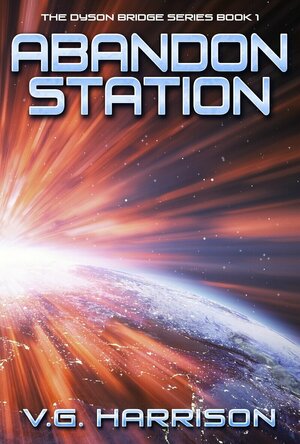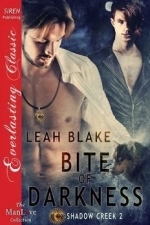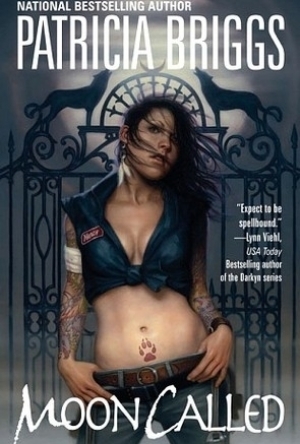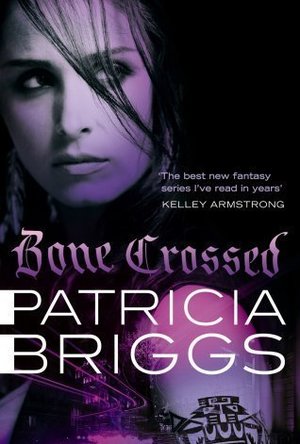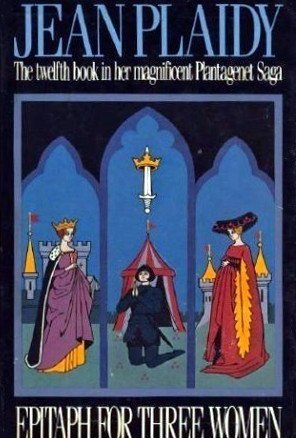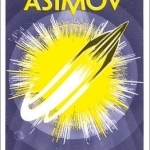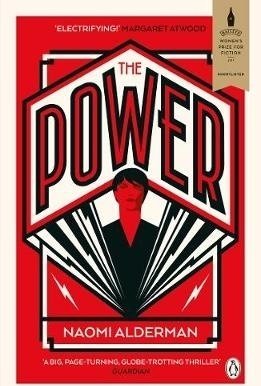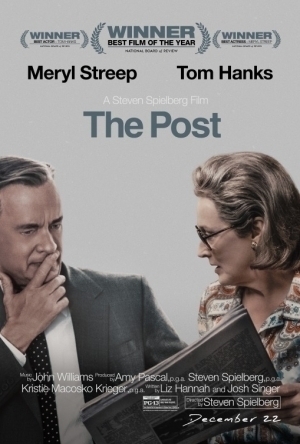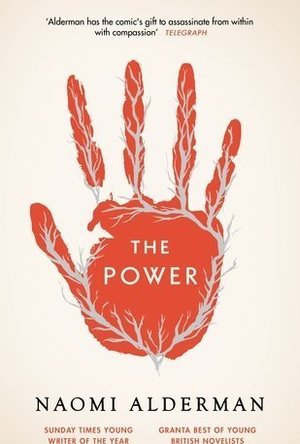Search
Search results
Debbiereadsbook (1633 KP) rated Abandon Station (Dyson Bridge #1) in Books
May 6, 2024
it finishes on a cliffhanger I did not see coming at me, and I was not prepared!!
Independent reviewer for Archaeolibrarian, I was gifted my copy of this book.
So, here's the thing, right?
I am mighty, MIGHTY annoyed at this book. Why? Because I thought it was a complete story, and it's not: it finishes on a cliffhanger I did not see coming at me, and I hate that! I wasn't prepared, I really wasn't, when it ended, and I am not happy.
It was a great read, though! I was fully engrossed in Merida and her people.
In the now Earth, it was a bit technical,but I kinda read those bits and glanced over the technical jargon used. In the NEW Earth, things were more understandable and I could even follow the politics! There's a lot going on that she isn't privy to, and her people are in danger of being stranded.
But peeps? That cliffhanger means I gotta wait to find out if Merida can get home, if she can find all her people from across the globe, and if her ex gets whatever he deserves!
A quick glance, and I cannot see when I might get my hands on book 2, either. So now, I'm doubly annoyed, with a review to write. Why do I put myself through this, you ask? Let me tell you.
To find books and authors like this: out of my comfort zone and new to me. I loved this book, bar that ending and I'm very pleased, as well as annoyed, that I got to read it.
4 most EXCELLENT stars
*same worded review will appear elsewhere
So, here's the thing, right?
I am mighty, MIGHTY annoyed at this book. Why? Because I thought it was a complete story, and it's not: it finishes on a cliffhanger I did not see coming at me, and I hate that! I wasn't prepared, I really wasn't, when it ended, and I am not happy.
It was a great read, though! I was fully engrossed in Merida and her people.
In the now Earth, it was a bit technical,but I kinda read those bits and glanced over the technical jargon used. In the NEW Earth, things were more understandable and I could even follow the politics! There's a lot going on that she isn't privy to, and her people are in danger of being stranded.
But peeps? That cliffhanger means I gotta wait to find out if Merida can get home, if she can find all her people from across the globe, and if her ex gets whatever he deserves!
A quick glance, and I cannot see when I might get my hands on book 2, either. So now, I'm doubly annoyed, with a review to write. Why do I put myself through this, you ask? Let me tell you.
To find books and authors like this: out of my comfort zone and new to me. I loved this book, bar that ending and I'm very pleased, as well as annoyed, that I got to read it.
4 most EXCELLENT stars
*same worded review will appear elsewhere
Merissa (13681 KP) rated Bite of Darkness (Shadow Creek #2) in Books
Aug 18, 2017
Bite of Darkness (Shadow Creek #2) by Leah Blake
Bite of Darkness is the second book in the Shadow Creek series. This time we focus on Vuk, who helped Devon out with a few choice words in book one. In his own story though, it's Vuk who is on the receiving end of advice as he turns into a bit of a jerk when he meets his mate. Now, to be fair, I couldn't exactly blame him. His alpha is ill, receiving a mystery transfusion, vampires are involved, the fae are involve, and no one (including Vuk) just exactly who to trust. Now, as it turns out, the vampires have their own reasons for helping out, which Vuk and Ashly get dragged into the middle of.
There is more mystery in this book, in my opinion. You know in book one that the fae wards are failing, but you're not 100% sure why. In this book, you find out more about that, and the politics of the paranormal world, but you are still left with questions unanswered. Apart from Vuk and Ashly, there is something going down with another wolf/vampire pair, but I'm hoping that will be a different story all of their own, and not just snippets given as the overall story arc progresses.
This is part of a series so I would recommend you read it in order for full enjoyment. With no editing or grammatical errors to disrupt my reading flow, I have no hesitation in recommending this book.
* A copy of this book was provided to me with no requirements for a review. I voluntarily read this book, and my comments here are my honest opinion. *
Merissa
Archaeolibrarian - I Dig Good Books!
There is more mystery in this book, in my opinion. You know in book one that the fae wards are failing, but you're not 100% sure why. In this book, you find out more about that, and the politics of the paranormal world, but you are still left with questions unanswered. Apart from Vuk and Ashly, there is something going down with another wolf/vampire pair, but I'm hoping that will be a different story all of their own, and not just snippets given as the overall story arc progresses.
This is part of a series so I would recommend you read it in order for full enjoyment. With no editing or grammatical errors to disrupt my reading flow, I have no hesitation in recommending this book.
* A copy of this book was provided to me with no requirements for a review. I voluntarily read this book, and my comments here are my honest opinion. *
Merissa
Archaeolibrarian - I Dig Good Books!
Rachel King (13 KP) rated Moon Called in Books
Feb 11, 2019
I recently recieved the fifth book in the Mercy Thompson series, Silver Borne, for reviewing purposes, and decided to start the series at the beginning like a good bookworm. I was not sure if I would like the series, but imagine my surprise when mechanically-inclined, shapeshifter Mercy Thompson has a penchant for the Christian religion! She likes to attend church, and she chooses to wear a lamb on a necklace instead of a cross because she finds it sick to display the instrument of Christ's torture, and one of Christ's names is the Lamb of God. I gotta say, how cool is that?
Anyways, I find it interesting how non-chalant Mercy is about what she is and can do. She does not seem to know much about being a "walker", but it doesn't bother her. It's the other preternatural beings who give her bits of information about her kind in well-timed accidents. She reminds me a bit of Rachel Morgan from the Kim Harrison series. (Oooh, cross-over potential...)
I also liked the complexities of the different cultures that the various preternatual beings originate from, and most expecially the impossible-to-pronounce names to match, such as Elizaveta Arkadyevna Vyshnevetskaya and Siebold Adelbertsmiter. The book was heavy on politics and violence, while light on romance, which I can appreciate in light of the storyline, but I look forward to things heating up between Mercy Thompson and her two wanna-be boyfriends, Adam and Samuel. I got a bit confused when trying to remember who's who in the cast of characters, especially since many of the lesser werewolves all tended to behave the same, and I really hope that future books will explain who or what the Gray Lords are.
Anyways, I find it interesting how non-chalant Mercy is about what she is and can do. She does not seem to know much about being a "walker", but it doesn't bother her. It's the other preternatural beings who give her bits of information about her kind in well-timed accidents. She reminds me a bit of Rachel Morgan from the Kim Harrison series. (Oooh, cross-over potential...)
I also liked the complexities of the different cultures that the various preternatual beings originate from, and most expecially the impossible-to-pronounce names to match, such as Elizaveta Arkadyevna Vyshnevetskaya and Siebold Adelbertsmiter. The book was heavy on politics and violence, while light on romance, which I can appreciate in light of the storyline, but I look forward to things heating up between Mercy Thompson and her two wanna-be boyfriends, Adam and Samuel. I got a bit confused when trying to remember who's who in the cast of characters, especially since many of the lesser werewolves all tended to behave the same, and I really hope that future books will explain who or what the Gray Lords are.
Rachel King (13 KP) rated Bone Crossed (Mercy Thompson, #4) in Books
Feb 11, 2019
I enjoyed this book just as much as I joined the previous three in the series. Briggs can be depended upon for maintaining an exciting plot and unique characters, and this book was no exception.
This book gave me a more detailed look into the politics of the vampire culture of Mercy's world, as well as more development of the character of Stefan. Stefan does not seem to talk much, but his body language seems to say that he loves Mercy, even if he knows she will never love him back, especially with the scene on the last few pages. The discoveries that Mercy makes regarding her abilities as a Walker are interesting and can hold lots of promise for future books in the series. I also enjoy being introduced to other lesser characters in the books that often help Mercy in some small way, such as the oakman. These characters give a more well-rounded picture of Mercy's world. Mercy's panic attacks, resulting from her rape in the previous book, were very realistic and made her more believeable as a character, since they gave her a weakness and a way to be related to. Superheroes always seem to be better at their "jobs" when they have a weakness that allows them to relate to the "common man." I'm also glad that Mercy was finally inducted into Adam's pack officially, although I found the method somewhat gross and cannibalistic. I still don't understand how Mercy can be "pack" to both Adam and his pack, as well as to Samuel, without any sort of backlash in the "animal kingdom", but hopefully that will be either explained or absolved with future books.
This book gave me a more detailed look into the politics of the vampire culture of Mercy's world, as well as more development of the character of Stefan. Stefan does not seem to talk much, but his body language seems to say that he loves Mercy, even if he knows she will never love him back, especially with the scene on the last few pages. The discoveries that Mercy makes regarding her abilities as a Walker are interesting and can hold lots of promise for future books in the series. I also enjoy being introduced to other lesser characters in the books that often help Mercy in some small way, such as the oakman. These characters give a more well-rounded picture of Mercy's world. Mercy's panic attacks, resulting from her rape in the previous book, were very realistic and made her more believeable as a character, since they gave her a weakness and a way to be related to. Superheroes always seem to be better at their "jobs" when they have a weakness that allows them to relate to the "common man." I'm also glad that Mercy was finally inducted into Adam's pack officially, although I found the method somewhat gross and cannibalistic. I still don't understand how Mercy can be "pack" to both Adam and his pack, as well as to Samuel, without any sort of backlash in the "animal kingdom", but hopefully that will be either explained or absolved with future books.
graveyardgremlin (7194 KP) rated Epitaph for Three Women (Plantagenet Saga, #12) in Books
Feb 15, 2019
<b>2.5 stars
Epitaph for Three Women</b> turned out to be far less about these three women than I was led to believe by the book's description. Broken into three parts titled Katherine of Valois, Joan of Arc, and Eleanor of Gloucester, only Joan, or Jeannette rather, has an actual story that follows her path in life. The other two are background players to the politics going on at the time, especially those concerning the Dukes of Bedford and Gloucester and England's fight for France. Whenever Katherine enters the picture, it's all light, airy, and extremely romanticized, especially in regards to Owen Tudor. For most of the book they live a totally idyllic life that doesn't feel realistic in the least. Eleanor Cobham is portrayed as a scheming, crown-hungry social climber who proves far too trusting of witches and soothsayers. Isabeau of Bavaria fares even worse and I got tired of the constant references to how whorish she was. Since this was written, historians have looked into the accuracy of her reputation and dismissed certain facets as untrue. Still, this isn't a completely bad book. Putting aside Katherine's storyline where she only made cameo appearances anyway, I enjoyed the first part the most. Not knowing much about this period, the history was fascinating. The second featuring Jeannette was my least favorite, but I lay full blame at my feet because I have just never cared for Joan of Arc's story, so found most of this part boring. While there was some interesting information in the book, I didn't love the book but it's an easy introduction to this particular time.
For more information on Eleanor Cobham, I recommend Susan Higginbotham's guest <a href="http://madameguillotine.org.uk/2012/09/03/the-duchess-downfall-eleanor-cobham/">post</a>; at Madame Guillotine.
Originally Reviewed: October 17, 2012
Received: Local Library
Epitaph for Three Women</b> turned out to be far less about these three women than I was led to believe by the book's description. Broken into three parts titled Katherine of Valois, Joan of Arc, and Eleanor of Gloucester, only Joan, or Jeannette rather, has an actual story that follows her path in life. The other two are background players to the politics going on at the time, especially those concerning the Dukes of Bedford and Gloucester and England's fight for France. Whenever Katherine enters the picture, it's all light, airy, and extremely romanticized, especially in regards to Owen Tudor. For most of the book they live a totally idyllic life that doesn't feel realistic in the least. Eleanor Cobham is portrayed as a scheming, crown-hungry social climber who proves far too trusting of witches and soothsayers. Isabeau of Bavaria fares even worse and I got tired of the constant references to how whorish she was. Since this was written, historians have looked into the accuracy of her reputation and dismissed certain facets as untrue. Still, this isn't a completely bad book. Putting aside Katherine's storyline where she only made cameo appearances anyway, I enjoyed the first part the most. Not knowing much about this period, the history was fascinating. The second featuring Jeannette was my least favorite, but I lay full blame at my feet because I have just never cared for Joan of Arc's story, so found most of this part boring. While there was some interesting information in the book, I didn't love the book but it's an easy introduction to this particular time.
For more information on Eleanor Cobham, I recommend Susan Higginbotham's guest <a href="http://madameguillotine.org.uk/2012/09/03/the-duchess-downfall-eleanor-cobham/">post</a>; at Madame Guillotine.
Originally Reviewed: October 17, 2012
Received: Local Library
Ande Thomas (69 KP) rated Foundation in Books
May 30, 2019
I'll admit. I didn't get it the first time. I found it lacking in more ways than one. I wanted a universe full of history and activity, rich with politics and intrigue. What I got...was actually just that. It just took me a second read through to appreciate it. I think that more than anything, I want a series that values society more than the individual. I want an acknowledgement that a single character isn't necessarily more important than any other, because in the grand scheme of the universe, life is far too fleeting to be of importance. Foundation fits the mold.
No character in Foundation really elevates to the unrealistic heroics one might expect in a sci-fi epic, save for possibly Hari Seldon. And though he get's all the credit, he did have a team of psycho-historians behind him. Every era throughout has its hero, to be sure, but they all identify within the confines of Seldon's prophecies. They recognize the Seldon crises, and they act, but only because they see what must be done. It's probably my favorite thing about the book and also the most frustrating. If a single person can set in motion the solution to a Seldon crisis, then how could Seldon have accounted for the variables of a single, powerful king or advisor? I'm no psycho-historian, so presumably his models give room for one rogue actor to deviate, causing another to react in a way that would guide the trajectory back on target. Who knows. All I know is it's fun. It's fun and frustrating, and despite my initial reservations, I can't wait to continue the series. I was wrong. There, I said it.
No character in Foundation really elevates to the unrealistic heroics one might expect in a sci-fi epic, save for possibly Hari Seldon. And though he get's all the credit, he did have a team of psycho-historians behind him. Every era throughout has its hero, to be sure, but they all identify within the confines of Seldon's prophecies. They recognize the Seldon crises, and they act, but only because they see what must be done. It's probably my favorite thing about the book and also the most frustrating. If a single person can set in motion the solution to a Seldon crisis, then how could Seldon have accounted for the variables of a single, powerful king or advisor? I'm no psycho-historian, so presumably his models give room for one rogue actor to deviate, causing another to react in a way that would guide the trajectory back on target. Who knows. All I know is it's fun. It's fun and frustrating, and despite my initial reservations, I can't wait to continue the series. I was wrong. There, I said it.
This was so original - dystopia where the women take control. This isn't an angle that we see very often, and in the current climate of #MeToo, it's nice to read something where the women have the upper hand (or is it?! Because that's what you're left thinking).
Women develop a 'skein' that grows across their collar bone, and gives them the ability to control/ kill/ maim men and each other. Absolute power corrupts absolutely (who said that anyway?) after all.
This is the story of the genesis of the power, how it was triggered throughout a generation, who were then able to awaken it in older women. How women realised that they didn't have to be victims anymore, and began to take on many/ all of the attributes of their male counterparts (and not always the good ones). Men are viewed as the weaker sex, women as protectors and leaders.
I was fascinated by this whole idea. The characters showed us the different sides to the power - religion, organised crime, politics - and how it utterly changed the dynamic in society.
The museum pieces were very interesting, and the idea that this book was being written thousands of years in the future was very clever. And being written by a man. I liked how his editor (a woman) thought he would be taken more seriously if he were to write under a female pseudonym! Oh how times had changed!
I listened to this on audiobook, and read along to parts of it. The narration and voice actors were spot on - I couldn't stop listening until I had to, of course. Real life has a habit of interrupting reading and listening time!
Highly recommended.
Women develop a 'skein' that grows across their collar bone, and gives them the ability to control/ kill/ maim men and each other. Absolute power corrupts absolutely (who said that anyway?) after all.
This is the story of the genesis of the power, how it was triggered throughout a generation, who were then able to awaken it in older women. How women realised that they didn't have to be victims anymore, and began to take on many/ all of the attributes of their male counterparts (and not always the good ones). Men are viewed as the weaker sex, women as protectors and leaders.
I was fascinated by this whole idea. The characters showed us the different sides to the power - religion, organised crime, politics - and how it utterly changed the dynamic in society.
The museum pieces were very interesting, and the idea that this book was being written thousands of years in the future was very clever. And being written by a man. I liked how his editor (a woman) thought he would be taken more seriously if he were to write under a female pseudonym! Oh how times had changed!
I listened to this on audiobook, and read along to parts of it. The narration and voice actors were spot on - I couldn't stop listening until I had to, of course. Real life has a habit of interrupting reading and listening time!
Highly recommended.
Lenard (726 KP) rated The Post (2017) in Movies
Jan 16, 2018
Acting (3 more)
Directing
Production Design
Editing
Burying the Lead
Meryl Streep is an American institution. Yet again, she proves that she is not finished finding new dimensions to her characters. In "The Post," she plays pioneering publisher Katherine Graham from The Washington Post. The film itself somehow manages to bury the lead in its own story. In an early scene, Streep playing Graham is at a meeting of the Board Of Directors voting whether The Post should go public. Graham never utters a word. Her advisor/attorney makes every statement for her. This is an indictment of the times, referred to later when Ben Bradlee makes an off-the-cuff remark about why her husband was given the paper in the first place. It is also a subtle clue about the quiet authority Katherine actually had, pulling all the strings though she had no voice in her own company. A later scene in which she retires to the drawing room with the other women while the men talk politics is another sign on the backward thinking times of not-so-long-age. It is here that the obstensible plot starts. Former Defense Secretary Robert McNamara pulls Katherine away from the other women to reveal a story that is about to appear in the New York Times. A classified Pentagon report was leaked that detailed how the American government knew the conflict in Vietnam was unwinnable, kept the war going as a facade, and had been lying to its constituents. Nixon and Attorney General Mitchell threatened the free press with injunctions, restraining orders, and incarceration. In the resulting Supreme Court case, Justice Black found that the press is responsible to protect the governed and not the governors. Buried within is the story of the inequality of men and women and the small strides women made to exist in this patriarchal society.
Nicole Hadley (380 KP) rated Love in Exile in Books
Jun 18, 2018
<a href="https://awindowintobooks.wordpress.com">Full Review</a>
Love in Exile by Ayse Kulin is a family narrative told between 1903 and 1941 during difficult times in Turkey. It occurs after the fall of the Ottoman Empire, the Balkan Wars and World War I. During this time families were torn apart by politics and war. This story is not just about war and difficult times but also a love story of two people who must find a way to be together despite their family differences and objections.
Sabahat Yedic is a lovely and smart woman who wishes to peruse her education despite the cultural expectations that she finish. She is driven and stubborn and stands up for her wish to complete her goal. Sabahat's family is Muslim. Her family taught her that as a women she should have a good family and children but she believes that her life should be so much more. She persuades her family allow her to continue her education. Sabahat meets a handsome mane named Aram, who is a young Armenian Christian. He has many qualities and views that match the same views of Sabahat. Soon after meeting they fell in love. The two love birds could have allowed their families to dictate who they love but decided to not allow their families choose who to love. They withstand traditions and risk everything to be together.
The descriptions of the city of Istanbul during the time of the story allowed for the story to come alive. I could feel the love and everything that surrounded me as I read.
I received this book from the published via NetGalley in exchange for a fair and honest review.
Love in Exile by Ayse Kulin is a family narrative told between 1903 and 1941 during difficult times in Turkey. It occurs after the fall of the Ottoman Empire, the Balkan Wars and World War I. During this time families were torn apart by politics and war. This story is not just about war and difficult times but also a love story of two people who must find a way to be together despite their family differences and objections.
Sabahat Yedic is a lovely and smart woman who wishes to peruse her education despite the cultural expectations that she finish. She is driven and stubborn and stands up for her wish to complete her goal. Sabahat's family is Muslim. Her family taught her that as a women she should have a good family and children but she believes that her life should be so much more. She persuades her family allow her to continue her education. Sabahat meets a handsome mane named Aram, who is a young Armenian Christian. He has many qualities and views that match the same views of Sabahat. Soon after meeting they fell in love. The two love birds could have allowed their families to dictate who they love but decided to not allow their families choose who to love. They withstand traditions and risk everything to be together.
The descriptions of the city of Istanbul during the time of the story allowed for the story to come alive. I could feel the love and everything that surrounded me as I read.
I received this book from the published via NetGalley in exchange for a fair and honest review.
This is no Handmaids Tale!!
This was so original - dystopia where the women take control. This isn't an angle that we see very often, and in the current climate of #MeToo, it's nice to read something where the women have the upper hand (or is it?! Because that's what you're left thinking).
Women develop a 'skein' that grows across their collar bone, and gives them the ability to control/ kill/ maim men and each other. Absolute power corrupts absolutely (who said that anyway?) after all.
This is the story of the genesis of the power, how it was triggered throughout a generation, who were then able to awaken it in older women. How women realised that they didn't have to be victims anymore, and began to take on many/ all of the attributes of their male counterparts (and not always the good ones). Men are viewed as the weaker sex, women as protectors and leaders.
I was fascinated by this whole idea. The characters showed us the different sides to the power - religion, organised crime, politics - and how it utterly changed the dynamic in society.
The museum pieces were very interesting, and the idea that this book was being written thousands of years in the future was very clever. And being written by a man. I liked how his editor (a woman) thought he would be taken more seriously if he were to write under a female pseudonym! Oh how times had changed!
I listened to this on audiobook, and read along to parts of it. The narration and voice actors were spot on - I couldn't stop listening until I had to, of course. Real life has a habit of interrupting reading and listening time!
Highly recommended.
Women develop a 'skein' that grows across their collar bone, and gives them the ability to control/ kill/ maim men and each other. Absolute power corrupts absolutely (who said that anyway?) after all.
This is the story of the genesis of the power, how it was triggered throughout a generation, who were then able to awaken it in older women. How women realised that they didn't have to be victims anymore, and began to take on many/ all of the attributes of their male counterparts (and not always the good ones). Men are viewed as the weaker sex, women as protectors and leaders.
I was fascinated by this whole idea. The characters showed us the different sides to the power - religion, organised crime, politics - and how it utterly changed the dynamic in society.
The museum pieces were very interesting, and the idea that this book was being written thousands of years in the future was very clever. And being written by a man. I liked how his editor (a woman) thought he would be taken more seriously if he were to write under a female pseudonym! Oh how times had changed!
I listened to this on audiobook, and read along to parts of it. The narration and voice actors were spot on - I couldn't stop listening until I had to, of course. Real life has a habit of interrupting reading and listening time!
Highly recommended.
